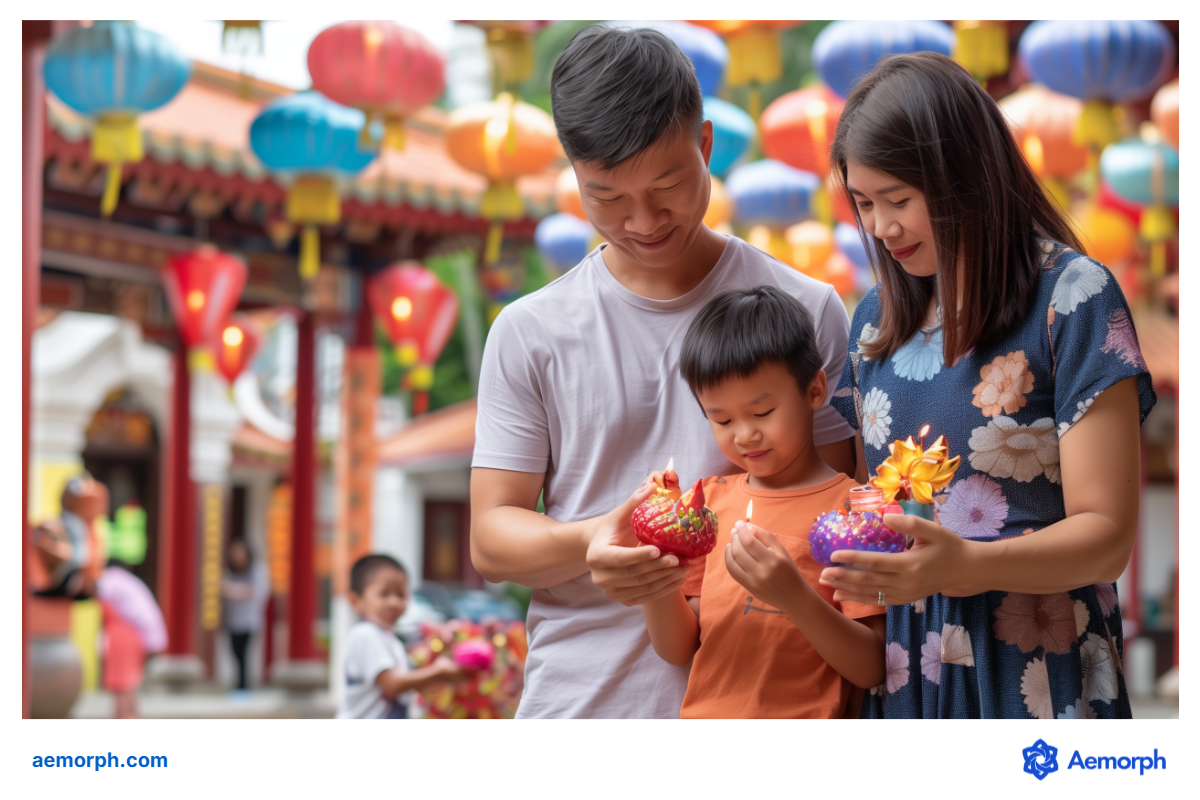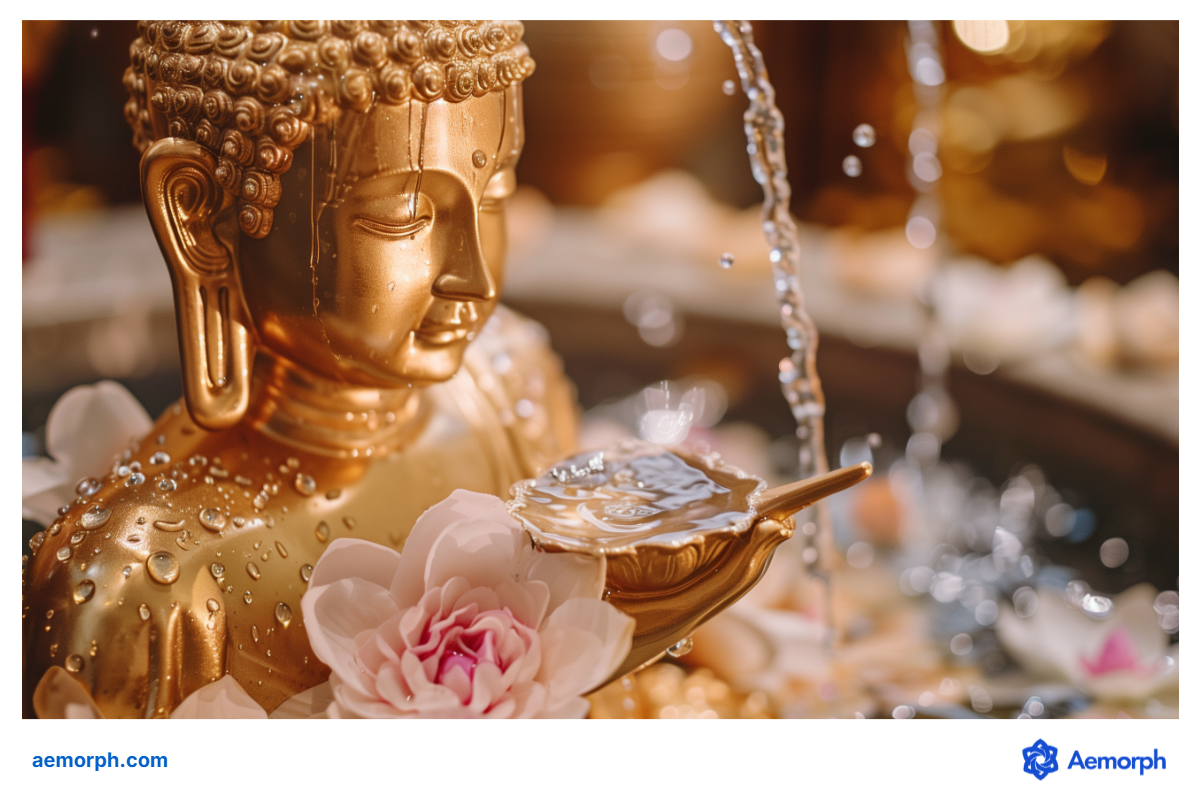
Vesak Day is a public holiday in Singapore that commemorates the birth, enlightenment, and passing of Siddhartha Gautama, the founder of Buddhism. It is the most important day in the Buddhist calendar and is observed by temples and communities across the island through rituals, prayers, and acts of generosity.
Vesak Day reflects Singapore’s respect for religious diversity and cultural heritage. The day brings people together in quiet observance and meaningful participation grounded in the Buddhist values of compassion, mindfulness, and non-violence.
This article discusses how Vesak Day is celebrated across the island, from traditional temple practices to public ceremonies, and how these traditions contribute to Singapore’s diverse and respectful cultural identity.
What is Vesak Day?
The festival marks three major events in the Buddha’s life:
- Birth: Siddhartha Gautama was born into a royal family but later renounced worldly life to seek answers to human suffering.
- Enlightenment: He attained enlightenment under the Bodhi tree, discovering the path to liberation from suffering.
- Parinirvana (Death): His passing represents the final liberation or nirvana after death.
Vesak Day has been officially recognised as a public holiday in Singapore since 1955. It is celebrated by various Buddhist communities, each contributing to a vibrant, interwoven celebration. Singapore’s respect for religious observance, combined with its support for public participation, allows Vesak Day to be celebrated widely, peacefully, and inclusively.
When Is Vesak Day in Singapore?
Vesak Day is observed on the full moon of the fourth lunar month, which usually falls in May. The exact date changes each year based on the lunar calendar. In 2025, Vesak Day in Singapore is observed on Monday, 12 May.
The date differs from some neighbouring countries like Malaysia and Sri Lanka, which celebrate on the first full moon of May, while Singapore and Thailand observe it on the second full moon of the Visakha month.
Social and Cultural Significance of Vesak Day
Vesak Day is a significant Buddhist festival that unites Singapore’s diverse Buddhist community, fostering religious harmony and shared cultural values. It embodies important teachings, such as compassion, wisdom, and non-violence, through rituals like Buddha bathing, vegetarianism, and acts of charity.
As a public holiday since 1955, Vesak Day encourages community bonding and kindness towards others. The festival also showcases Singapore’s rich heritage, with temples hosting lively ceremonies and cultural events that engage both locals and visitors.
Key Rituals Observed on Vesak Day
Each year, Vesak Day in Singapore is marked by a series of meaningful rituals that reflect the teachings of the Buddha and the values of compassion, gratitude, and reflection. These practices occur in temples and public spaces, inviting both personal devotion and communal engagement.
Temple Visits

On Vesak morning, devotees gather at temples across the island before sunrise. Popular sites include Kong Meng San Phor Kark See Monastery in Bishan, Buddha Tooth Relic Temple in Chinatown, and Lian Shan Shuang Lin Monastery in Toa Payoh. Here, devotees chant sutras, offer incense and flowers, and bow in reverence.
Each ritual is layered with symbolism:
- Flowers that wilt represent the impermanence of life
- Candles signify enlightenment
- Incense reflects moral discipline.
The Buddha Bathing Ceremony

This symbolic ritual involves pouring water over a statue of the infant Buddha. Inspired by the legend of nine dragons bathing him at birth, the act signifies purification of the mind, speech, and actions. It is performed by individuals and families alike, regardless of age or religious denomination.
Temples often set up rows of small altars with Buddha statues and ladles to accommodate the steady stream of participants. It’s one of the most visually and spiritually moving aspects of Vesak Day in Singapore.
Vegetarian Offerings & Communal Meals
In line with the principle of ahimsa (non-violence), many Buddhists follow a strict vegetarian diet during Vesak. Temples and community groups offer free vegetarian meals to the public, from porridge and rice to curry vegetables, and mock meats.
These food offerings reflect generosity, humility, and a collective effort to reduce harm to sentient beings.
Acts of Charity
Vesak Day is a time to accumulate merit through good deeds. Many participate in blood donation drives, food distribution to the underprivileged, or monetary offerings to charitable causes. Some also volunteer at temples or clean public spaces as an act of service.
Historically, animal release was also practised, but it’s now discouraged in Singapore due to environmental concerns. Instead, Buddhists focus on sustainable and impactful acts of compassion.
Evening Candlelight Processions
At dusk, several temples host candlelight processions, calm, slow walks where devotees carry candles while chanting. The glowing procession symbolises clarity, inner peace, and the light of wisdom dispelling ignorance.
Major temples, such as Kong Meng San, often attract thousands for this serene experience, combining solemnity with a sense of communal purpose.
Prominent Temples in Singapore for Vesak Observance
Singapore is home to a wide range of Buddhist temples, each offering unique Vesak experiences:
- Kong Meng San Phor Kark See Monastery (Bishan): The largest Buddhist temple in Singapore, it serves as the focal point for Vesak rituals and community gatherings.
- Buddha Tooth Relic Temple and Museum (Chinatown): Housing what is believed to be a relic of the Buddha himself, this temple organises detailed tours, chanting ceremonies, and cultural exhibitions.
- Lian Shan Shuang Lin Monastery (Toa Payoh): A national monument with Tang-style architecture, perfect for those seeking a heritage-rich experience.
- Wat Ananda Metyarama Thai Buddhist Temple (Jalan Bukit Merah): Singapore’s oldest Theravāda temple, known for its Thai traditions and quieter, meditative setting.
- Sakya Muni Buddha Gaya Temple (Race Course Road): Known as the “Temple of a Thousand Lights”, this Mahāyāna-Theravāda hybrid offers a large Buddha statue and inclusive Vesak programmes.
Respecting and Participating in Vesak Day
For locals wishing to respectfully observe Vesak Day — whether Buddhist or not — here are key pointers:
- Dress Modestly: Temples are sacred spaces. Covered shoulders and knees are encouraged.
- Observe Silence Where Required: Chanting and meditation sessions may be in progress.
- Avoid Disruptive Photography: Always ask for permission before taking photos inside temples.
- Donate Mindfully: If you’re moved to contribute, temples accept offerings for upkeep or charity.
- Join a Community Effort: Volunteer through your local CC or temple-led initiative.
Participation, even in small ways, shows support for the values of empathy, wisdom, and mindfulness, which are the heart of Vesak.
Vesak Day and Singapore’s Cultural Harmony
Vesak Day is a reflection of Singapore’s deep commitment to religious harmony and appreciation of multiculturalism. Just as Hari Raya Puasa marks the end of Ramadan with community feasts, and Deepavali lights up homes with spiritual significance, Vesak Day brings people together through acts of compassion, mindfulness, and unity.
These celebrations, though rooted in different traditions, collectively highlight Singapore’s unique social fabric, where diverse beliefs are not only tolerated but celebrated. Observing Vesak Day alongside other festivals helps Singaporeans and visitors alike understand the values that define this city-state: inclusiveness, respect, and shared humanity.
Curious about other vibrant celebrations? Discover more festivals celebrated across Singapore and see how each one contributes to the nation’s rich multicultural community.









